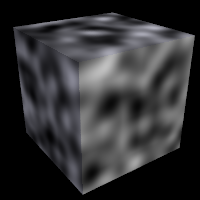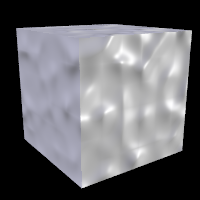Difference between revisions of "Reference:Dents Pattern"
Jump to navigation
Jump to search
Jholsenback (talk | contribs) m (1 revision: Initial Load (TF)) |
Le Forgeron (talk | contribs) |
||
| (2 intermediate revisions by 2 users not shown) | |||
| Line 18: | Line 18: | ||
pattern is similar to normal dents but is not identical as are most normals | pattern is similar to normal dents but is not identical as are most normals | ||
when compared to pigments.</p> | when compared to pigments.</p> | ||
| + | |||
| + | <table class="centered" width="420px" cellpadding="0" cellspacing="10"> | ||
| + | <tr> | ||
| + | <td>[[Image:RefImgDentsPigment.png|center|200px<!--centered--->]]</td> | ||
| + | <td>[[Image:RefImgDentsNormal.png|center|200px<!--centered--->]]</td> | ||
| + | </tr> | ||
| + | <tr> | ||
| + | <td colspan="2"><p class="caption">dents pattern used as pigment and normal respectively</p></td> | ||
| + | </tr> | ||
| + | </table> | ||
Latest revision as of 08:59, 1 March 2014
The dents pattern was originally designed only to be used as
a normal pattern. It is especially interesting when used with metallic
textures. It gives impressions into the metal surface that look like dents
have been beaten into the surface with a hammer. Usually the dents are about
1 unit apart.
When used as a normal pattern, this pattern uses a specialized normal
perturbation function. This means that the pattern cannot be used with
normal_map, slope_map or wave type modifiers in a
normal statement.
When used as a pigment pattern or texture pattern, the dents
pattern is similar to normal dents but is not identical as are most normals
when compared to pigments.
dents pattern used as pigment and normal respectively |
|

